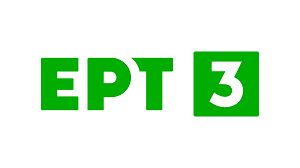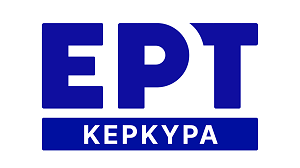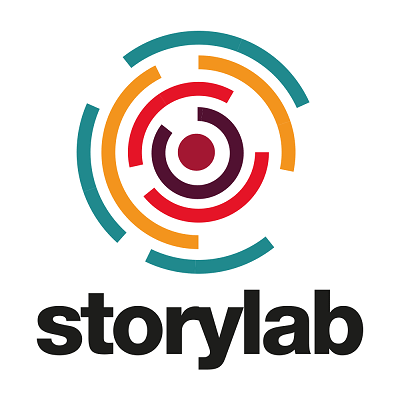Summary
Portrayals of mental illness in filmmaking aim at reducing the stigmatization of individuals with mental illness. The paper presents the production methodology of a short documentary film to combat the stigma of individuals diagnosed with schizophrenia. The documentary can work psycho-educationally and be used as an educational resource to raise awareness in society.
Theoretical background – Aim of the paper
Films can inspire people and raise awareness in the community about issues related to mental illness. However, without sound scientific research and realistic staging, films can even lead to inaccurate assumptions and stigma. Media representations are often criticised for unrealistically portraying psychiatric disorders, especially schizophrenia (F20), providing negative stereotypical images and perpetuating myths about mental illness [1]. Individuals diagnosed with schizophrenia are often highly stigmatized and associated with a negative self-evaluation [2]. Stigma stems mainly from the ignorance and fears that the onset of symptoms can cause when a patient with schizophrenia is having a psychotic episode. According to ICD-10 [3] “Schizophrenic disorders are characterized in general by fundamental and characteristic distortions of thinking and perception and affects that are inappropriate or blunted. Clear consciousness and intellectual capacity may usually maintain although certain cognitive deficits may evolve. The most important psychopathological phenomena include thought echo, thought insertion or withdrawal, thought broadcasting, delusional perception and delusions of control, influence or passivity, auditory hallucinations, thought disorders and negative symptoms”. In addition, one of the biggest difficulties in a patient’s with schizophrenia treatment is the lack of compliance, especially when it comes to medication [4]. The purpose of this paper is to present the methodology of producing a short documentary film to combat stigma associated with individuals with mental illness by setting out the course of a 34-year-old young man who has been diagnosed with schizophrenia for more than a decade and the process of his inclusion back into society.
Method
The methodology utilized was both technical, following the steps of film production, and content analysis based on contemporary research on schizophrenia with a rigorous approach to the use of terms. Film production does not simply refer to creating audiovisual material but includes many stages of its life cycle: pre-production, production and post-production [5,6]. The pre-production stage includes the script, scene sketches, storyboards, breakdown sheets and location photos. The production stage involves creating the material with traditional filming (shooting) and recording. In the post-production stage, the main task is to edit the footage combining it with archival material. In our case, at the post-production stage, all personal data are deleted following the General Data Protection Regulation (GDPR).
The content was developed with narratives referring to the historical review of the Psychiatric Hospital of Corfu, shots of the modern facilities included in the General Hospital of Corfu after the psychiatric reform in Greece, interviews with specialized therapists (psychiatrists, psychologists and occupational therapists) and mainly through the autobiographical narrative of the aforementioned patient. A key parameter for effective community awareness programs about mental illness is to allow patients who have been included into society to share their own stories and experience. In this particular short documentary film, the integration process of the 34-year-old "protagonist" is presented [7]. After a relationship of trust was cultivated both with him and his family, they joined a psychoeducational program, which comprises medication, psychotherapeutic intervention, counselling and training in social and professional skills.
Conclusion
The main purpose of the short documentary film was to highlight the support of people with schizophrenia from the Greek Health System. The ideal rehabilitative approach to mental disorders is based on a patient's psycho-education in medication compliance and psychotherapeutic counselling, as well as family counselling. Depicting the course of a young person, who, after having gone through all the stages of hospitalization, is now in the stage of social rehabilitation, can combat the stigma associated with individuals with mental illness. Therefore, the documentary can work psycho-educationally and be used as an informative resource to raise awareness in society.
References
[1] Y. Aracena, Psychosis in films: An analysis of stigma and the portrayal in feature films, CUNY Academic Works, 2012. https://academicworks.cuny.edu/cc_etds_theses/134/.
[2] T. Jamalamadaka, E. Griffith, H. Steer, P. Salkovskis, Fear of illness recurrence and mental health anxiety in people recovering from psychosis and common mental health problems, Br. J. Clin. Psychol. 59 (2020) 403–423. https://doi.org/10.1111/bjc.12253.
[3] World Health Organization, International statistical classification of diseases and related health problems, 10th revision (ICD-10), Fifth version, World Heal. Organ. (2016).
[4] P. Argitis, A. Karampas, P. Bringiotti, S. Karavia, O. Pikou, F.-E. Kakavitsas, A novel approach to patients with schizophrenia and type 2 diabetes showing low treatment compliance, Eur. Psychiatry. 65 (2022) S768–S768. https://doi.org/10.1192/j.eurpsy.2022.1983.
[5] I. Panagopoulos, Reshaping Contemporary Greek Cinema Through a Re-evaluation of the Historical and Political Perspective of Theo Angelopoulos’s Work, University of Central Lancashire, 2019.
[6] P. Kaimara, Design and Development of Interactive Edutainment Systems in Inclusive Education: Interactive educational programs and audiovisual arts as a bridge between typically developing children and children with special educational needs and/or disabilities, PhD Thesis, Corfu: Audio and Visual Arts, Ionian University, Corfu, 2022. https://www.didaktorika.gr/eadd/handle/10442/52582.
[7] G. Lepenioti, P. Kaimara, P. Ntalli, Z. Chaviaras, The contribution of psychoeducation to the rehabilitation of people with schizophrenia (In Greek: Η συμβολή της ψυχοεκπαίδευσης στην αποκατάσταση ατόμων με σχιζοφρένεια), in: 18th Panhellenic Conf. Psychol. Res., Department of Psychology, Panteion University, Athens, Greece, 2022: p. 61. https://www.elpse2022.gr/documents/Vivlio_Perilhpsewn_21x28cm_Site.pdf.
Polyxeni Kaimara holds a PhD in Educational Psychology & Educational Technology from the Ionian University (Department of Audio and Visual Arts)in Corfu, Greece, a MSc in Developmental and School Psychology and a BSc in Psychology from the Aristotle University of Thessaloniki (Department of Psychology) in Thessaloniki, Greece, a MSc in Public Health from the University of West Attica (Department of Public Health Policy) in Athens, Greece and a BSc in Counseling and Guidance from the Higher School of Pedagogical and Technological Education (ASPAITE) in Thessaloniki, Greece. She is also a Certified Trainer and Assessor of the Greek National Organization for the Certification of Qualifications & Vocational Guidance and a Certified Trainer of the National Centre for Public Administration and Local Government. She is currently a post-doc researcher at the Department of Audio and Visual Arts (Ionian University). She has teaching experience at the University of Western Macedonia and Ionian University. She works as a psychologist in the psychiatric sector and educational centres for people with disabilities at the Greek Ministry of Health. She is a co-author of numerous papers and book chapters and has presented research works at international conferences. Her research interests focus on the design and evaluation of educational systems and games for students with special educational needs and inclusive education.
https://scholar.google.com/citations?user=rVcJ1mUAAAAJ&hl=el
Maria Peyioti is currently a first-year resident psychiatrist at the Corfu General Hospital, Greece. She graduated from the Democritus University of Thrace’s, School of Medicine. During her studies, she volunteered in several mental health facilities and organisations in Cyprus and Greece. She attended several national conferences.
Petros Argitis is a consultant psychiatrist at the Corfu General Hospital, Greece. He completed his specialization in psychiatry through his experience at the clinics of the Corfu Psychiatric Hospital and the Psychiatric and Neurological University Clinic of the Ioannina Hospital. After obtaining his specialty, he remained at the Psychiatric Clinic of the University Hospital of Ioannina for 9 months and later served at the General Hospital of Thira. During his training, he mainly dealt with the neuroscientific approach to psychiatric diseases and the application of medicine based on indications (evidence-based medicine). He was involved in the awareness and familiarization with transmagnetic stimulation from the Neurological Clinic of the University of Ioannina, in psychotherapeutic and psychodiagnostic methods from the Open Psychotherapeutic Center-Institute for Group Analysis of Patients and in Cognitive Analytical Psychotherapy from the Panhellenic Society of Cognitive Analytical Psychotherapy. He has attended several international and Greek psychiatric conferences.
Vasileios Zembilis was born in Kastoria in 1998 and he is an undergraduate student at the Department of Audio & Visual Arts of Ionian University, Greece. His focus is videography, video editing and photography. He participated twice in a department photography exhibition in 2018 and 2019. He currently works as a photographer.
Adamantia Egglezopoulou is currently the Manager of the Corfu General Hospital, while she has been Deputy Manager (2019-2023) of the Athens General Hospital "LAIKO". She holds a PhD from the School of Medicine, National and Kapodistrian University of Athens, Greece, a Master's degree in Health Services Administration from the Department of Public Health Policy, University of West Attica, Greece, a Master's degree in Quality of Health Care Units, Epidemiology and Health Effects, School of Medicine, University of L' Aquila, Italy and a bachelor's degree from the Department of Public Administration of the Panteion University of Social and Political Sciences, Athens, Greece. She has dealt with the recognition of European and National Reference Centers for Rare Diseases, the implementation of Quality Management Systems, the preparation of Strategic Plans, and Emergency Response Plans, Targeting Plans, and Operating Regulations, the application of international quality and safety "tools" in health, as well as with the monitoring of procedures and the observance and evaluation of relevant quality and safety indicators. She is a certified adult trainer at National Centre for Public Administration and Local Government and a certified International Inspector/Evaluator, from the Hellenic Accreditation System (ESYD). She has been awarded Healthcare Awards, for innovations/initiatives to improve the Healthcare System. She participates as a speaker in Scientific Conferences/Seminars/ Clinical Educational Courses, etc. She has published reviews and research papers, some of which have won awards.
Zannis Chaviaras is a psychiatrist and Coordinator Director of the Psychiatric Department at the Corfu General Hospital, Greece. He actively participated in the process of psychiatric reform in Greece and the transition from the traditional psychiatric institution to alternative structures of psychiatric care and rehabilitation in the community, such as residential homes, hostels and sheltered apartments. He has attended numerous international and Greek psychiatric conferences. Throughout his career, he has worked to combat stigma through targeted actions in the community.
Back














